Anxiety
What is Anxiety?
Anxiety is a normal part of life. Many people worry about things like health, money or family issues. But anxiety disorders involve more than temporary worry or fear.
Anxiety does not go away in people with anxiety disorders and may worsen over time. Symptoms may interfere with daily activities such as job performance, schoolwork, and relationships.
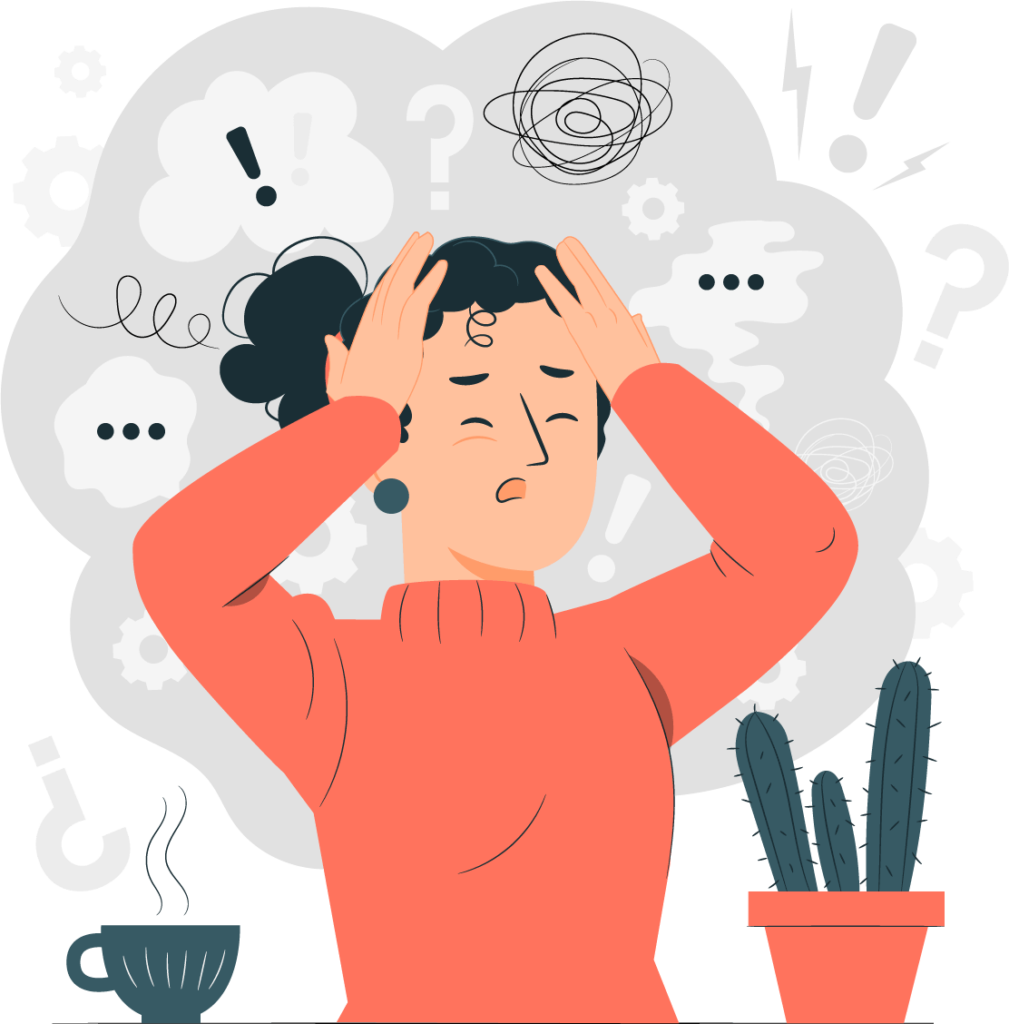
Anxiety Types


Panic Attack
is a sudden feeling of intense fear in the absence of triggers, in a crowd, open place, or home alone.
Agoraphobia (AG)
is described as a fear of being in a place or situation where escape may be intricate, or help might not be available (fear of embarrassment).
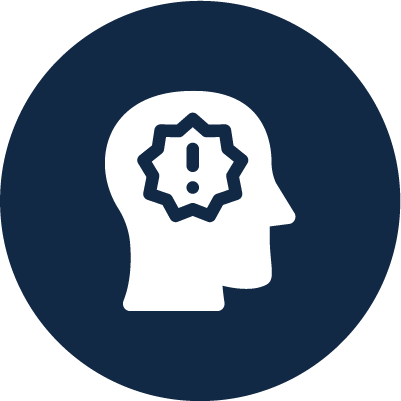

Specific Phobia
is an unreasonable fear of particular objects or
situations such as animals (e.g., spiders, rats, dogs, lion), natural environment (heights, storms, water), situational (boarding plane), and blood.
Social Anxiety Disorder
refers to worrying about people’s judgment or laughing at one’s appearance, dress, or fear of speaking in public or facing interviewers.
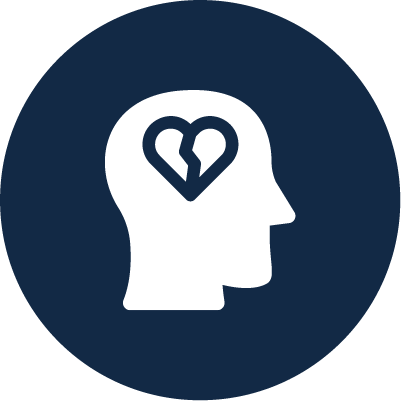
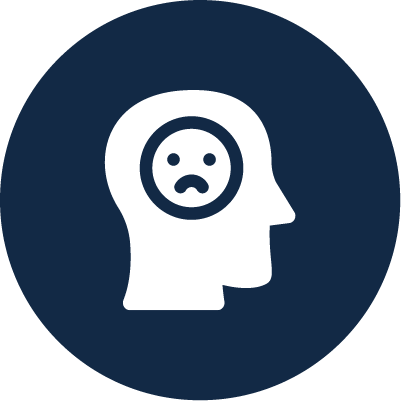
Separation Anxiety Disorder
is an intense fear of separating a child from his parents or anybody from his loved ones.
Obsessive-Compulsive Disorder
involves constant obsession, recurrent and persistent thoughts, behavior, and feeling dirty or unwanted events that cause anxiety.


Posttraumatic Stress Disorder (PSTD)
is an anxiety disorder characterized by flashbacks of
horrible thoughts following terrifying experiences like war, accident, or rape attack.
Selective Mutism (SM)
refers to the inability of children to speak in public or
social gatherings, especially at school.

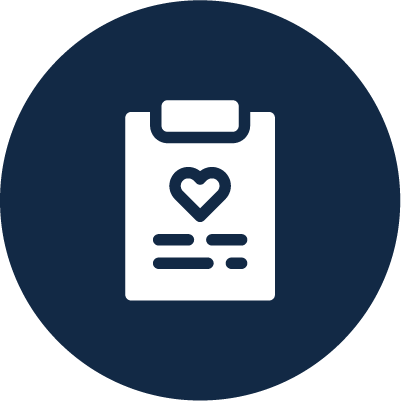
Medication Anxiety Disorder (MAD)
is caused by the adverse effects of a drug or due to
withdrawal syndrome.
Medical Condition Anxiety Disorder (MCD)
Disease conditions such as ulcers, asthma, diabetes,
hypertension, hyperthyroidism, cancer, and heart
disease may cause anxiety as comorbidity.
Anxiety Types

Panic Attack
is a sudden feeling of intense fear in the absence of triggers, in a crowd, open place, or home alone.

Agoraphobia (AG)
is described as a fear of being in a place or situation where escape may be intricate, or help might not be available (fear of embarrassment).

Specific Phobia
is an unreasonable fear of particular objects or
situations such as animals (e.g., spiders, rats, dogs, lion), natural environment (heights, storms, water), situational (boarding plane), and blood.

Social Anxiety Disorder
refers to worrying about people’s judgment or laughing at one’s appearance, dress, or fear of speaking in public or facing interviewers.

Separation Anxiety Disorder
is an intense fear of separating a child from his parents or anybody from his loved ones.

Obsessive-Compulsive Disorder
involves constant obsession, recurrent and persistent thoughts, behavior, and feeling dirty or unwanted events that cause anxiety.

Posttraumatic Stress Disorder (PSTD)
is an anxiety disorder characterized by flashbacks of
horrible thoughts following terrifying experiences like war, accident, or rape attack.

Selective Mutism (SM)
refers to the inability of children to speak in public or
social gatherings, especially at school.

Medication Anxiety Disorder (MAD)
is caused by the adverse effects of a drug or due to
withdrawal syndrome.

Medical Condition Anxiety Disorder (MCD)
Disease conditions such as ulcers, asthma, diabetes,
hypertension, hyperthyroidism, cancer, and heart
disease may cause anxiety as comorbidity.
Symptoms of Anxiety

![]() Panic, fear and restlessness
Panic, fear and restlessness![]() State of feeling anxious
State of feeling anxious![]() Change in mental states
Change in mental states![]() Not staying calm
Not staying calm![]() Sleep problem
Sleep problem![]() Cold, sweaty, numb or tingling hands or feet
Cold, sweaty, numb or tingling hands or feet![]() Shortness of breath
Shortness of breath![]() Dry mouth
Dry mouth![]() Heart palpitations
Heart palpitations![]() Nausea
Nausea![]() Dizziness
Dizziness

Panic, fear and restlessness

State of feeling anxious

Change in mental states

Not staying calm

Sleep problem

Cold, sweaty, numb or tingling hands or feet

Shortness of breath

Dry mouth

Heart palpitations

Nausea

Dizziness


